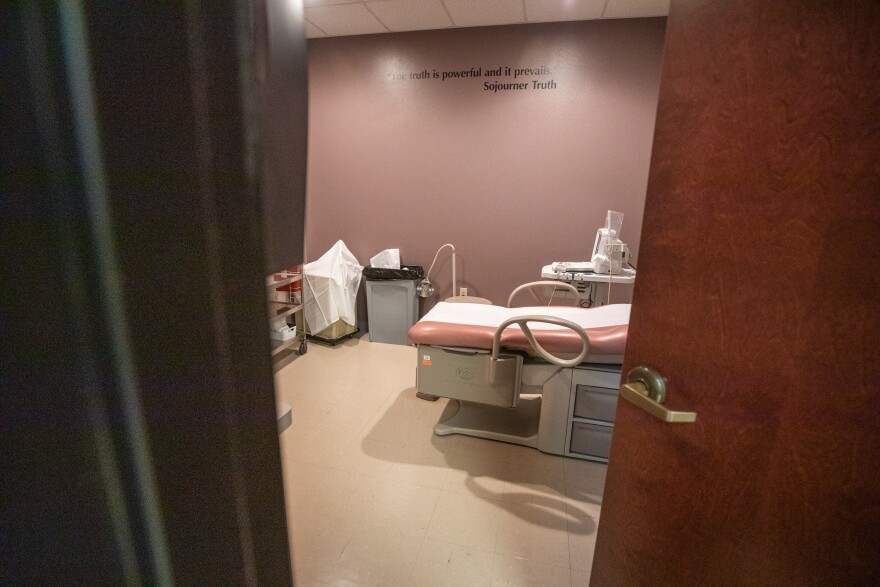Since Texas’ six-week abortion ban went into effect in September, many Texans have been seeking the procedure out of state. Almost half have been going to Oklahoma.
That could soon change as Oklahoma is poised to adopt a more extreme version of Texas’ law.
Like Senate Bill 8, the Oklahoma bill directs private citizens to enforce the abortion ban. Anyone who provides the procedure or “aids and abets” someone who gets an abortion is subject to legal action. But while Texas’ law prohibits the procedure around six weeks into a pregnancy, Oklahoma’s law goes a step further and bans abortions after conception.
Kari White, an associate professor at UT Austin and a lead investigator with the Texas Policy Evaluation Project, says if the Oklahoma ban goes into effect, it won’t just affect access to abortions for Oklahomans, but it will also affect many Texans.
“From the data that we have obtained on Texas residents going out of state since SB 8 has gone into effect, we are seeing almost half of Texans getting their care at one of the four facilities in Oklahoma,” she said. “So this will be incredibly disruptive.”
White and other researchers at TxPEP recently reported that 45% of Texans who traveled out of state between September and December 2021 obtained those services in Oklahoma. New Mexico received the second most Texans seeking abortions — about 27%.
Oklahoma is the state closest to the Dallas-Fort Worth area, one of the biggest metro areas in the United States. As a result, the state has been inundated with Texans seeking the procedure. White said this has led to long wait times at clinics.
“Already people are experiencing delays in getting care because of the huge demand on those facilities,” she said.
The Lilith Fund helps low-income people pay for abortions in Texas. Communications Director Cristina Parker said many of the nonprofit's clients have been relying on access to clinics in Oklahoma. In the first few months SB 8 was in effect, she said, about 31% of Lilith's clients went to the state.
If the Oklahoma law passes, Parker said, clients will be forced to go even farther away from home for an abortion.
“What the impact could be for our clients is they will have to travel farther [and] they will have to spend more to get there,” she said.
Parker said last-minute travel is expensive for everyone, but it can be prohibitively expensive for some. She said her group’s clients often don’t have the resources to travel, can’t take time off work and already have children they have to find child care for.
“It’s really, really hard to get an abortion in Texas ... even if you have the resources you need, which most of our clients don’t,” Parker said.





















